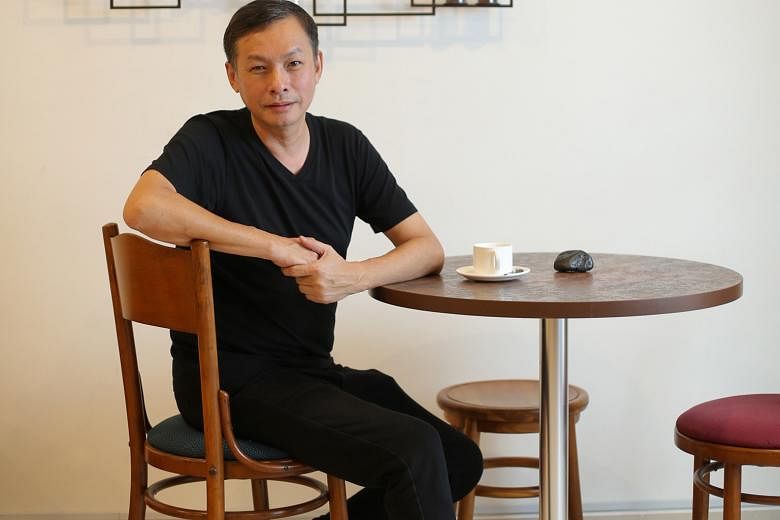Total Defence Day: Sing it, Singapore - There's A Part For Everyone
As a young executive in the advertising firm engaged by the Defence Ministry for its nascent Total Defence media campaign, Mr Gerald Png helped write a song that has endured for more than three decades.
He recalls creating the melody for There's A Part For Everyone in under an hour. The song was released in 1984 with the launch of the Total Defence campaign.
But the comfort and peace enjoyed by Singaporeans in the mid-1980s made it a challenge relating the song even to himself.
"It is different from talking about tangible things such as military hardware. When it came to the psychological part of it (national defence), I had to think about the part I would want to play and how I could convince myself to play it," said Mr Png, 58, who now runs a restaurant-cum-social enterprise, Soul Food.
He emphasises that the song was part of a larger team effort from his company and its client. The tagline for the campaign inspired the song.
There was no immediate threat of any sort and Singapore was friendly with all its neighbours, he said, and the challenge was to write a song that would help Singaporeans see the part they played.
"There was a risk that it would become another government campaign," added Mr Png.
The intention was not to elicit "simple patriotism", but to send a message that national defence is not limited to the men in uniform.
The lyrics were intended to convey how Singapore had grown from a small fishing village, endured the Japanese Occupation and became a nation.
"The lyrics had to remain purposeful and meaningful across different age segments," Mr Png said, even as the song got across how there had been hardships faced by the country. A new arrangement was made of the song by local band QuickPick last year.
He helped female colleague get NS leave
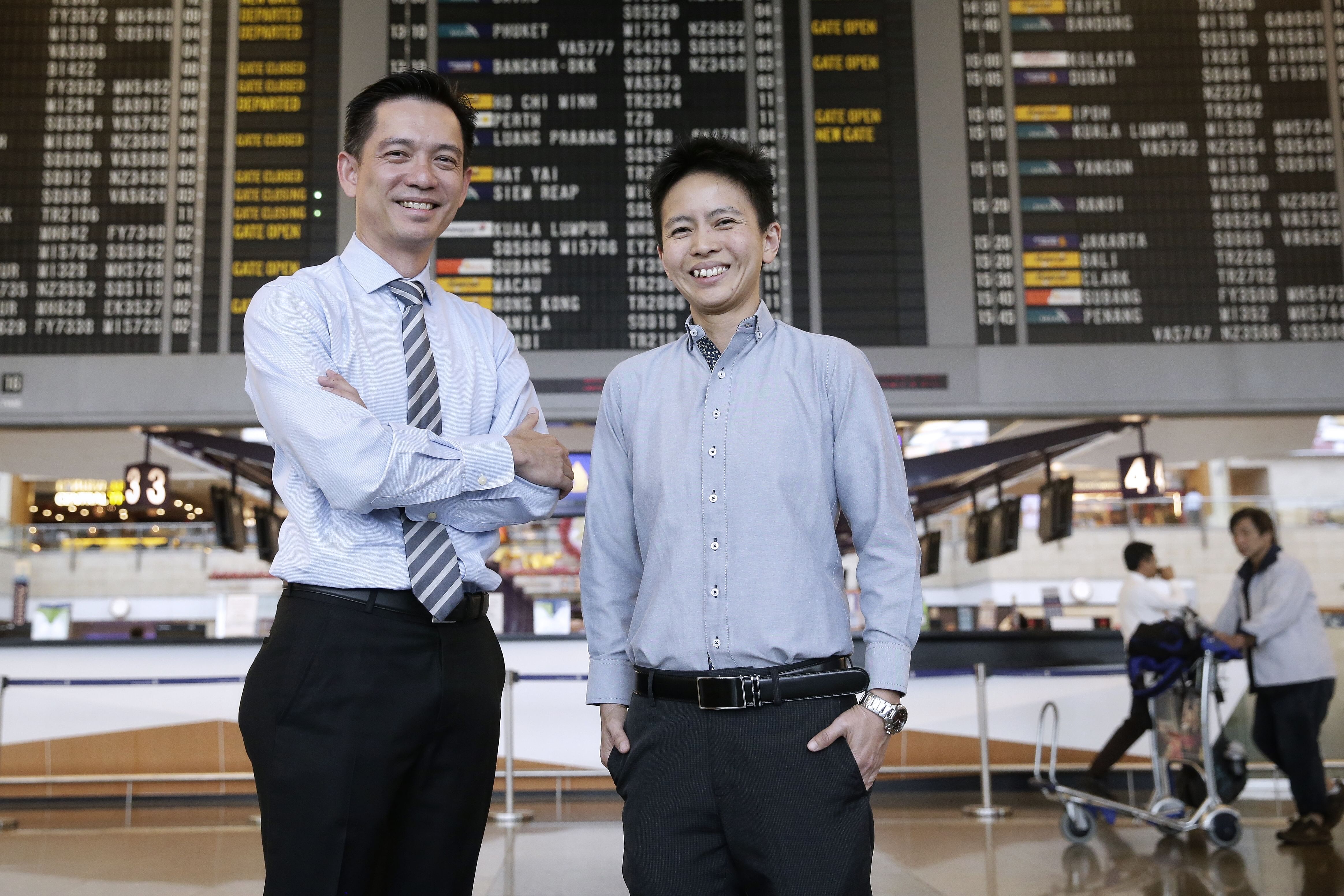
When he found out that a female employee - a former air force regular - was taking her annual leave in 2013 to return to her squadron for training, Mr Jayson Goh decided to give her a leg-up.
Mr Goh, the managing director of airport operations management at Changi Airport Group, convinced his company's human resources department to grant her national service (NS) leave when she is called up, similar to how male employees are given time off for in-camp training.
A change in HR policy was made in 2014 and, since then, senior associate Amanda Giam, 38, has been able to return to her unit, the 160 Squadron, without taking her own leave.
Ms Giam, who is a master sergeant (NS), left the Republic of Singapore Air Force (RSAF) in 2009. She was still keen to serve, and became the RSAF's first female volunteer in 2013.
Mr Goh said that Ms Giam should be given an equal opportunity to serve the nation, and his HR department was receptive to the suggestion.
"The role she is playing as a woman is no less than what a man would do. She went through all the training when she was a regular servicewoman," he added.
"If you believe that when people take their NS seriously, a lot of the skills they learn will develop them into a better individual, the kind of contributions they make at their organisations will be stronger."
Online food mart helps businesses give back
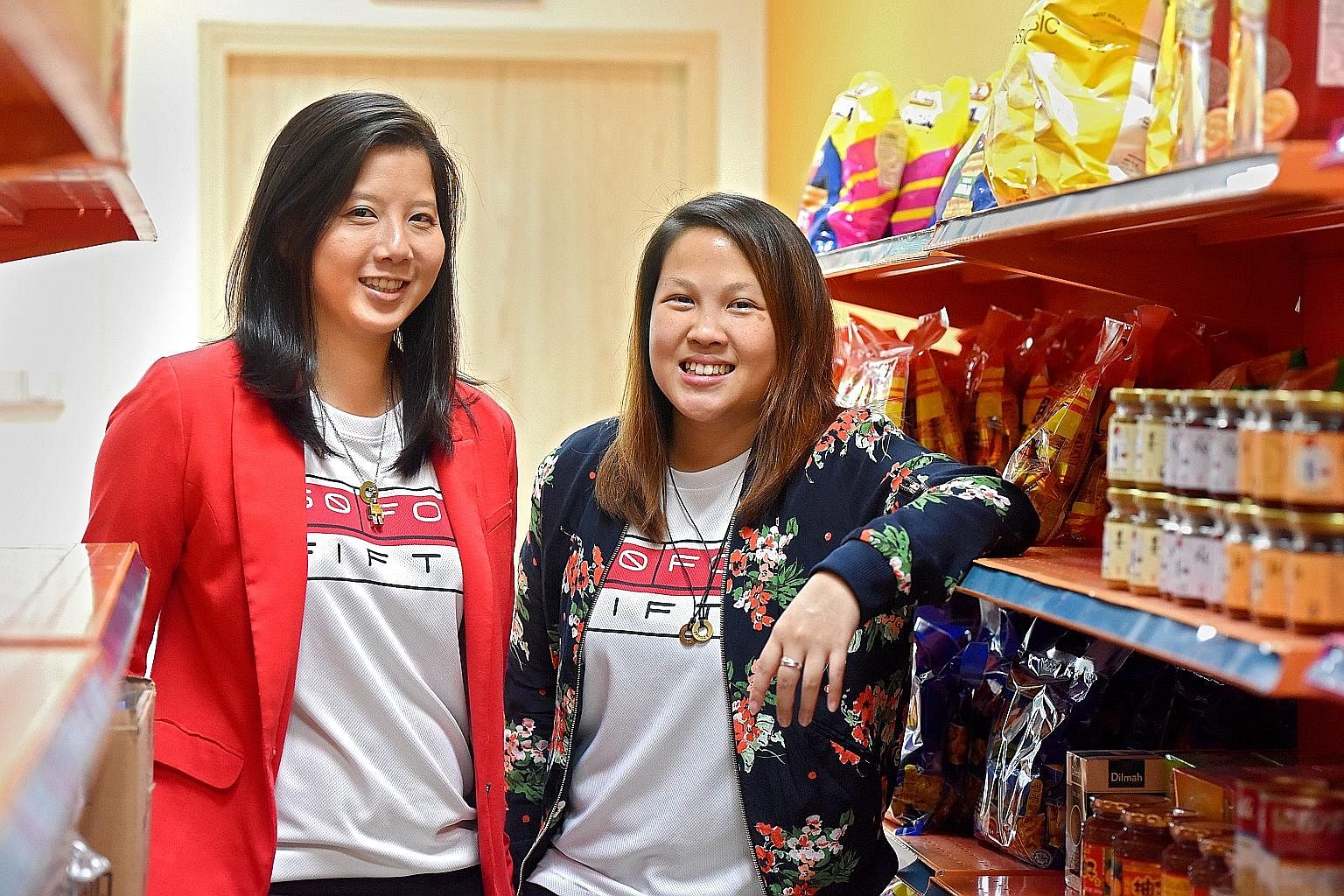
When companies stock up on foods such as coffee and biscuits for their pantries, they also provide employment to people with disabilities.
Delivery orders of items placed through an online mart called The Social Pantry are picked and packed by beneficiaries from the Association for Persons with Special Needs, who receive a token allowance for their work.
The Social Pantry, which was beta launched in August last year and gets an average of two to three orders a week, was started by The Social Co and Samsui Supplies and Services, a subsidiary of the Soup Restaurant Group.
It will be officially launched next month, adding stationery supplier Menlon Agency to the initiative.
Ms Rebekah Lin, 32, who founded The Social Co with her friend Cheryl Chong, 31, said the aim of The Social Pantry is to show how businesses can make money and give back to society.
The Social Co, a think-tank aimed at solving social issues, was also behind the 50 For 50 campaign, which raised close to $2.25 million for 58 local charities. This sum was matched equally by the Government, for a total of $4.5 million.
The project encouraged individuals under the age of 35 to design their own fund-raising activities and launch sustainable projects to help charities.
Ms Lin said: "I have seen everyone come together, regardless of race or religion, to work on different social causes."
NS 'taught us to work for one another, whatever our differences'

Actor and comedian Suhaimi Yusof admits that when people look at him now, they may not think that he served national service.
But his experiences in the army are something that he treasures deeply.
They helped to shape the man he is now, the 47-year-old said.
The lessons he learnt went beyond learning how to defend himself and the country.
They also taught him how to forge relationships with people from different backgrounds. Race and religion were never barriers.
"As a platoon, everyone received the same punishment, for instance. This taught us to work for one another, whatever our differences," he told Berita Harian.
This camaraderie can be seen in society as well.
"Sometimes, we take for granted the good relationship there is between different segments of society. But we have to realise that it is our responsibility to protect and strengthen this harmony."
He explained that the main way for him to get others to connect is through comedy. "It breaks down walls between people."
Home cook pays it forward after years of ill health
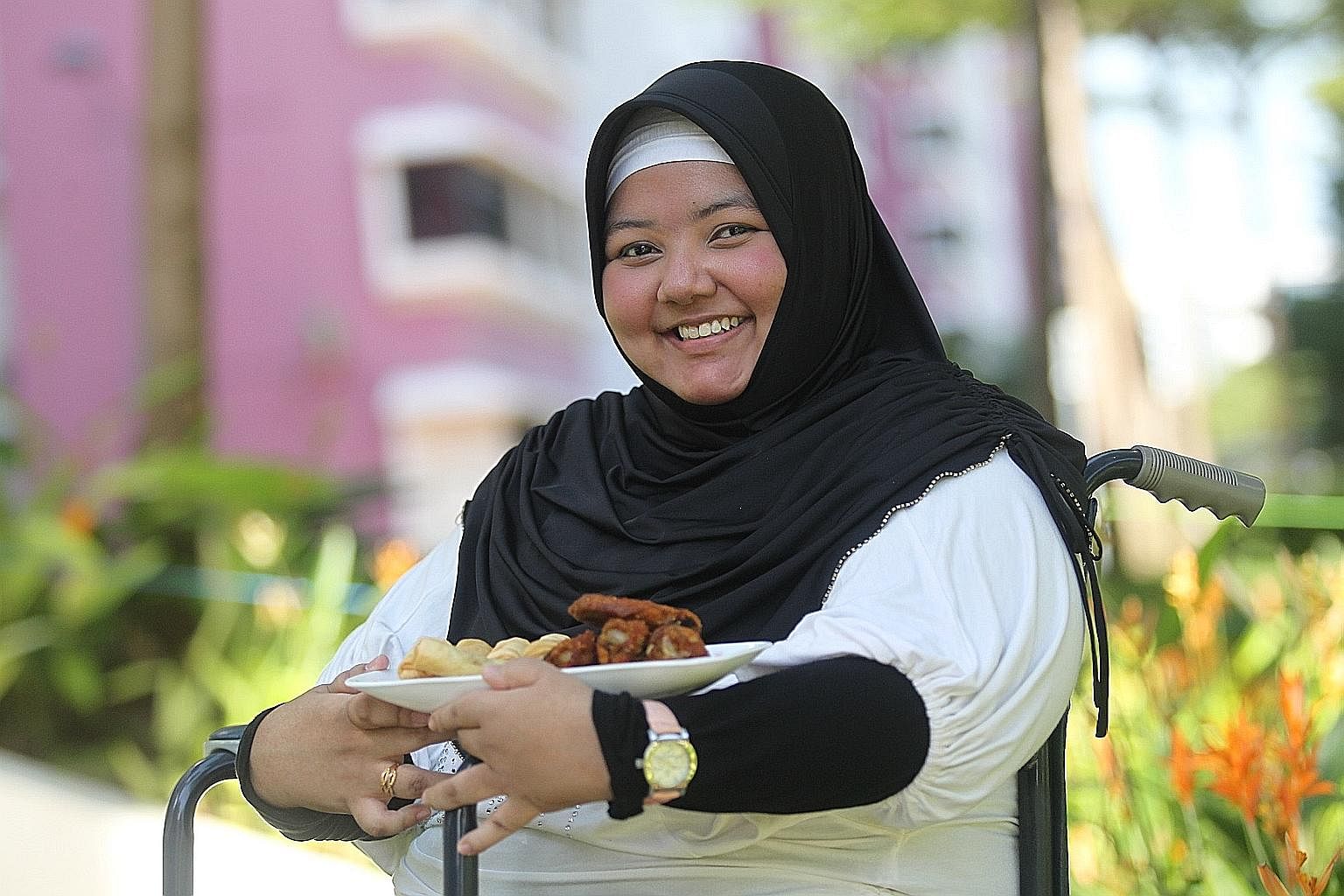
She had a serious fall at age 15 while playing netball in school, suffered a severe fever which was untreated, and became bedridden for two years.
But that did not stop Ms Siti Noor Ain Masaid, now 30, from setting up a home-based food business 10 years ago, allowing her to gain financial independence.
When she started ChixCheese in 2007 to sell spring rolls stuffed with chicken and cheese, she was still using a wheelchair and had difficulty lifting her arms.
But she wanted to have an income to pay for physiotherapy sessions, which were paid for by her uncle who died.
The initial going was tough. Even with her family's help, her first week of orders - 30 boxes of 15 pieces of spring rolls - were not easy to produce. She was confined to her bed the week after due to stiffness, cramps and aches.
But she decided to press on, motivated by the encouragement of her customers, who sent her text messages telling her how much they enjoyed her spring rolls.
"I wanted to make people happy and I just continued. The positive vibes pushed me to go forward," she added.
Today, she gets orders of up to 70 boxes a week, and is able to produce the spring rolls on her own as her condition has improved. She is also able to walk around the house without a walking aid.
She has grown her business through word of mouth, social media and, most recently, through an app called Hcook, which connects home cooks with customers.
She is paying it forward now, by dedicating the profits from some of her orders to needy organisations, such as orphanages.
Recounting the years she was bedridden and fell into depression, she said: "Whatever happened to me, I am grateful, because it taught me to be more humble and caring, and I can comfort others in pain now."
Once afraid, now a blood donor advocate

Although afraid, Ms Clare Lee had the moral support of her schoolmates the first time she donated blood at 16 years old.
"We all went as a group - about 10 of us - and supported one another, and that helped me to get over the apprehension," said Ms Lee, who is now 24 and working as a marketing executive.
Ms Lee is now a regular blood donor, and goes to the blood bank up to three times a year.
"It is a small sacrifice, but it is worth it... If a crisis happens tomorrow, I know I have contributed in a way to help those who need the blood," she said.
She wants to persuade her friends and family to become regular donors as well.
"The concern most people have is that it is painful. But actually, they give you (an injection of) anaesthetic first," said Ms Lee.
She added: "One of Singapore's strongest resources is our people, so we should take care of one another."
Supporting mature PMETs as mentor and career coach
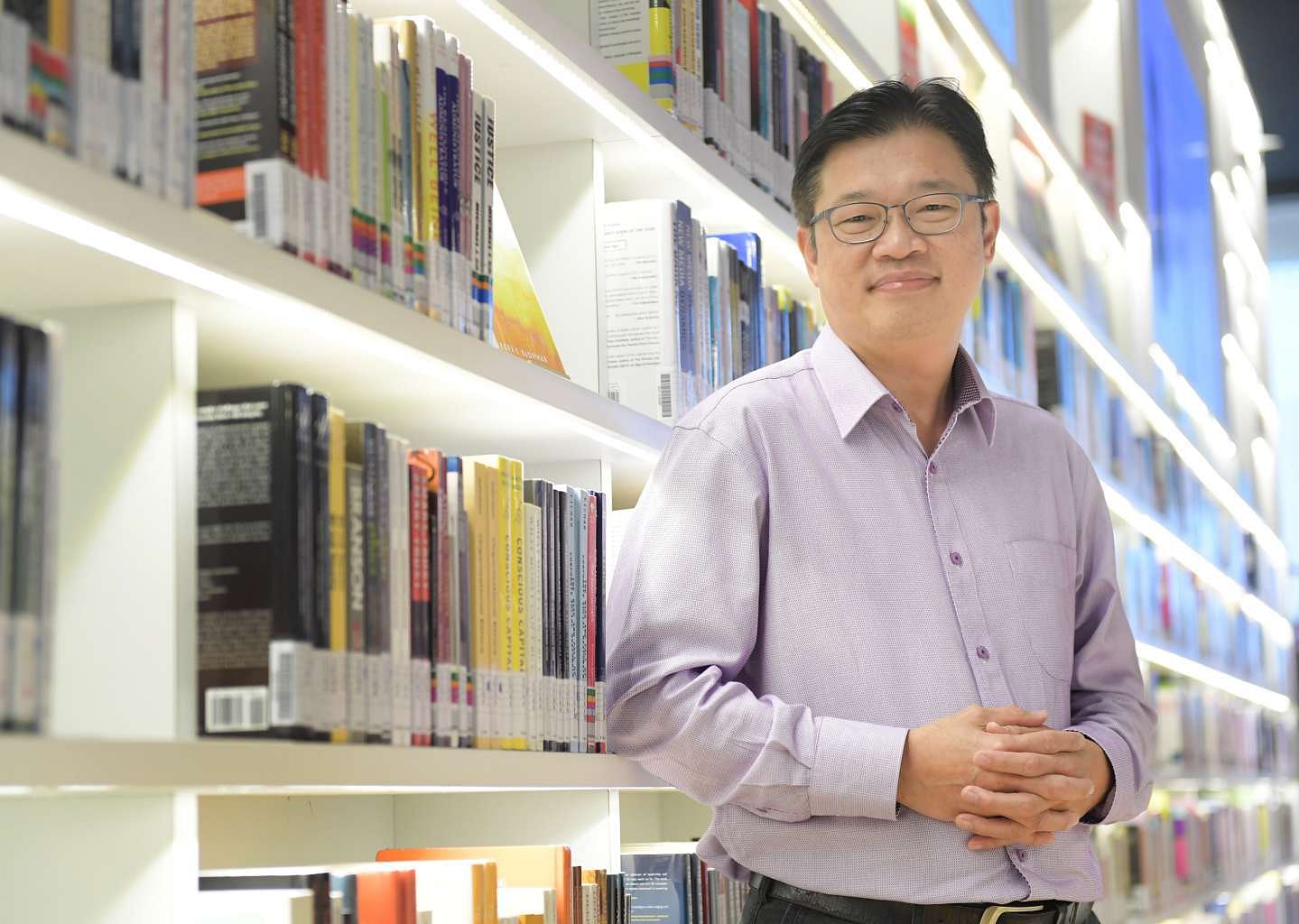
Mr Dennis Chan, 47, once sent around 200 job applications before landing a new job.
Starting his job search in 2008, Mr Chan managed to secure a position as a senior IT manager only in 2010.
The main hurdle for prospective employers was his age.
"They (the companies) said they would get back to me, but of course, they did not," recalled Mr Chan.
He is now a senior career coach, providing support to job-seekers.
He is also a volunteer mentor in the Career Activation Programme, a peer support group for mature out-of-job professionals, managers, executives and technicians (PMETs).
One of the main challenges he faced as an older job-seeker was the lack of support, he said.
"There was no peer support group back then," said Mr Chan.
Now, he is part of a wave of volunteers aiming to improve support programmes for PMETs who are looking for a job.
"I share my job-seeking experience, encourage them and show them positive stories to motivate them," said Mr Chan.
On top of that, he encourages his charges to upgrade their skills constantly through initiatives such as SkillsFuture to prevent a situation in which they do not have the relevant expertise.
"Mature PMETs need to take charge of their own careers," he said.
The various lessons he had learnt over the course of his job search included understanding industrial trends, keeping a positive mindset and constantly maintaining self-belief.
Asked to compare mature PMETs with their younger counterparts, Mr Chan said that those who are older tend to have better soft skills.
"They have more working experience, resilience and people-management skills," he said.
